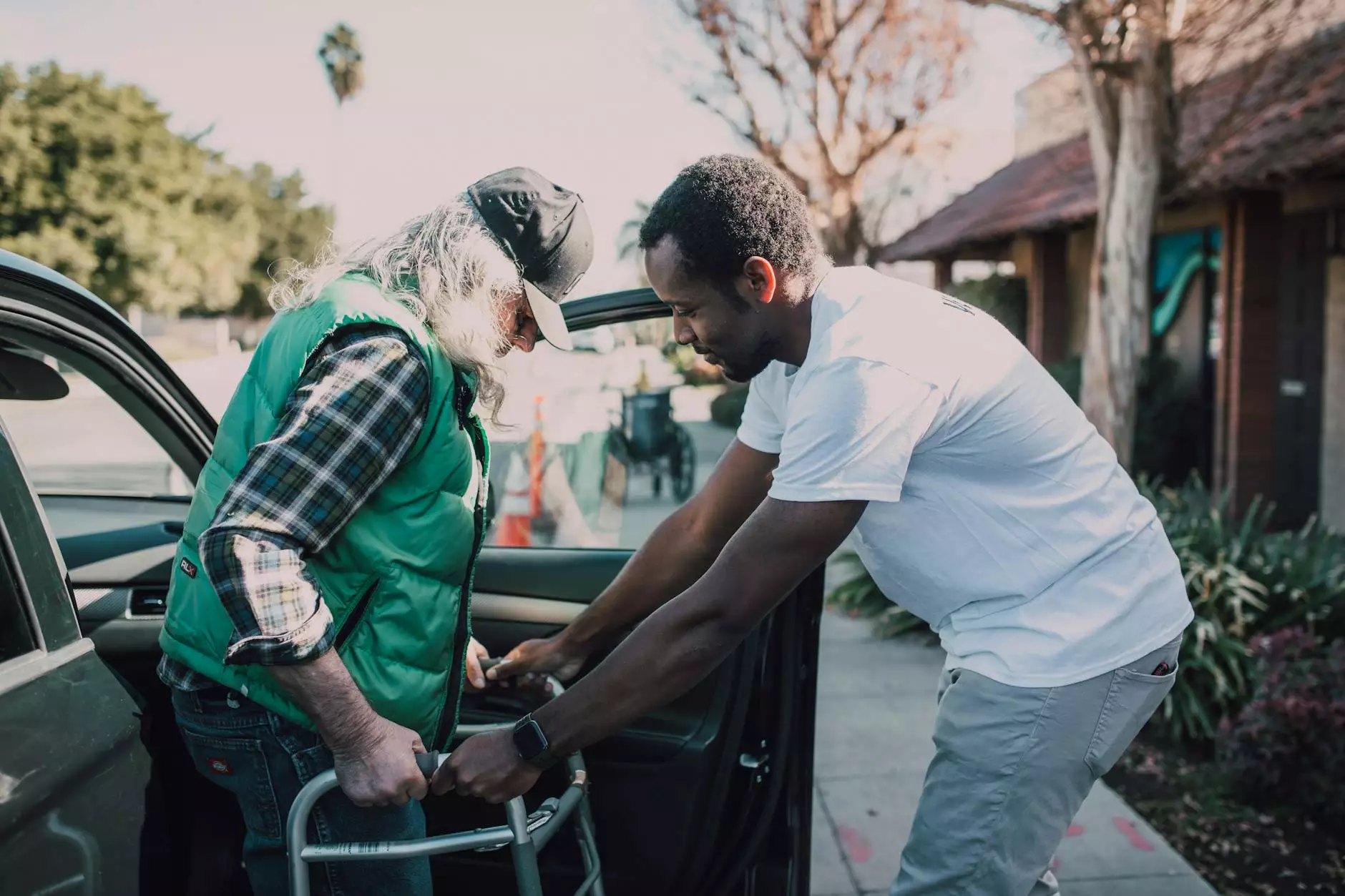Understanding the Role of Black Millennials in the Church

In today's rapidly evolving society, the faith landscape is undergoing significant changes. Particularly notable is the rise of the Black Millennials Church, a movement that not only embraces spirituality but also empowers young people to take an active role in their faith communities. This article explores the dynamic impact of Black millennials on religious organizations, community service, and non-profit endeavors, particularly within the context of Bridge Church NYC.
The Significance of the Black Millennials Church
The concept of a Black millennials church is a response to the diverse spiritual and cultural needs of younger generations. Black millennials, individuals born between 1981 and 1996, represent a significant demographic within the African American community. As this generation grows and develops their own unique identity, they are reshaping how faith is expressed and lived out.
Religious Practices and Cultural Relevance
Cultural relevance is paramount for Black millennials. Traditional church practices can sometimes feel disconnected from their realities. As such, many young individuals are seeking churches that resonate with their experiences, beliefs, and values. This has led to the rise of innovative worship styles, modern sermons, and community-focused outreach programs that cater specifically to younger audiences.
- Inclusive Worship Services: Nowadays, services often incorporate contemporary music, multimedia presentations, and interactive sermon formats.
- Community Engagement: Many Black millennials value serving their communities, encouraging churches to engage in local outreach and support initiatives.
- Social Justice Focus: Advocacy for racial and social justice issues is often at the forefront of their ministry, addressing topics that resonate deeply with their lived experiences.
The Intersection of Faith and Activism
Black millennials are not only shaping the church; they are also emerging as powerful voices for social change. Many are passionately blending their faith with activism, addressing issues such as racial inequality, police brutality, and economic disparities. This intersectionality has birthed movements within many churches that prioritize justice and community upliftment.
Creating Safe Spaces for Discussion
As discussions surrounding race and identity become increasingly relevant, the Black millennials church serves as a safe space for open dialogue. These churches create environments where young adults can express their feelings about societal issues while rooted in faith. Such discussions not only strengthen community ties but also encourage personal and spiritual growth.
The Role of Technology in Modern Worship
Technology has become a driving force in how churches, particularly those engaging with Black millennials, communicate and connect with their congregants. Social media platforms, live streaming, and digital resources are essential tools in reaching today's youth.
Utilizing Social Media Platforms
Churches that successfully harness social media can spread their messages swiftly and effectively. Platforms like Instagram, Twitter, and Facebook allow for the dissemination of inspirational messages, community updates, and engaging content that resonates with young audiences.
Benefits of Digital Engagement:
- Expanded Reach: Churches can connect with individuals outside their immediate geographical areas.
- Real-Time Communication: Members can share prayer requests and personal stories instantly, fostering community regardless of location.
- Access to Resources: Digital platforms can provide access to sermons, support groups, and educational resources.
Empowerment Through Community Service
Community service represents one of the cornerstones of faith for many Black millennials. The Black millennials church often emphasizes serving those in need, showcasing the church's role as a beacon of hope and progress within the community.
Engaging in Local Initiatives
Engagement in local initiatives allows Black millennials to actively participate in enhancing their communities. Whether through food drives, educational workshops, or health fairs, these activities not only uplift community members but also reinforce the church's commitment to making a tangible difference.
Examples of Effective Community Service Initiatives:
- Food Security Programs: Addressing hunger in urban settings through food pantries and meal-sharing initiatives.
- Literacy and Education Programs: Offering tutoring and mentoring services to youth to close the education gap.
- Health Awareness Campaigns: Promoting health screenings and awareness about chronic diseases prevalent in the community.
Encouraging Leadership and Volunteer Involvement
The Black millennials church is a breeding ground for leadership opportunities. Many young adults, feeling empowered by their faith, take on significant roles within their religious organizations.
Developing Future Leaders
Church programs aimed at developing leadership skills are crucial for nurturing the next generation of leaders. Workshops, mentorship programs, and leadership training sessions create pathways for young individuals to grow and make impactful decisions.
- Youth Leadership Retreats: Offering immersive experiences that inspire confidence and community responsibility.
- Mentorship Programs: Pairing younger members with established leaders for guidance and professional development.
- Volunteer Positions: Encouraging active participation in church operations, from administration to outreach.
The Future of the Black Millennials Church
The future looks bright for the Black millennials church. As this generation continues to navigate a complex world, their influence on faith and community service will undoubtedly shape the church's evolution for years to come. By blending tradition with modernity, these churches will carry forward spiritual legacies while innovating to meet contemporary needs.
Embracing Diversity in Faith
Diversity remains a critical focus as Black millennials champion the inclusion of various voices and experiences within their congregations. This emphasis on diversity in faith cultivates an environment where individuals of all backgrounds feel welcomed and valued.
Conclusion: A Call to Action
The role of the Black millennials church is both vital and transformative. As this generation seeks to redefine their spiritual paths, it is essential for religious organizations to embrace their leadership, creativity, and passion for service. By fostering inclusive environments, engaging in meaningful community service, and utilizing technology, churches can thrive in this new era of faith.
For those involved with or interested in the Black millennials church, consider how you can take action within your community. Whether you’re leading initiatives, participating in services, or innovating new approaches, every effort contributes to a brighter future both for the church and the community it serves.









